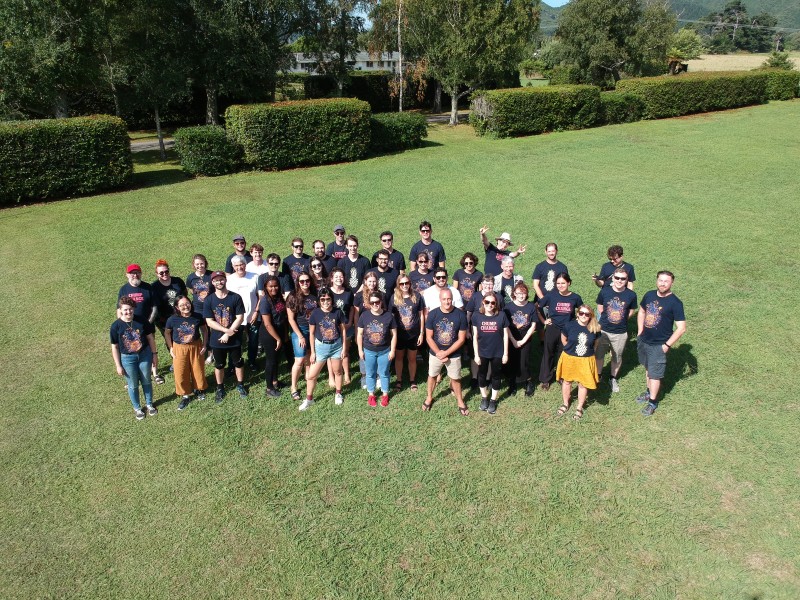- Iterate
- Meet The Team
- The Top 10 Startup Teams in New Zealand
Table of contents
Located precariously close to the bottom of the world map and hosting fewer total occupants than many US cities, New Zealand wouldn’t pop out as a natural innovation hotbed to the untrained eye.
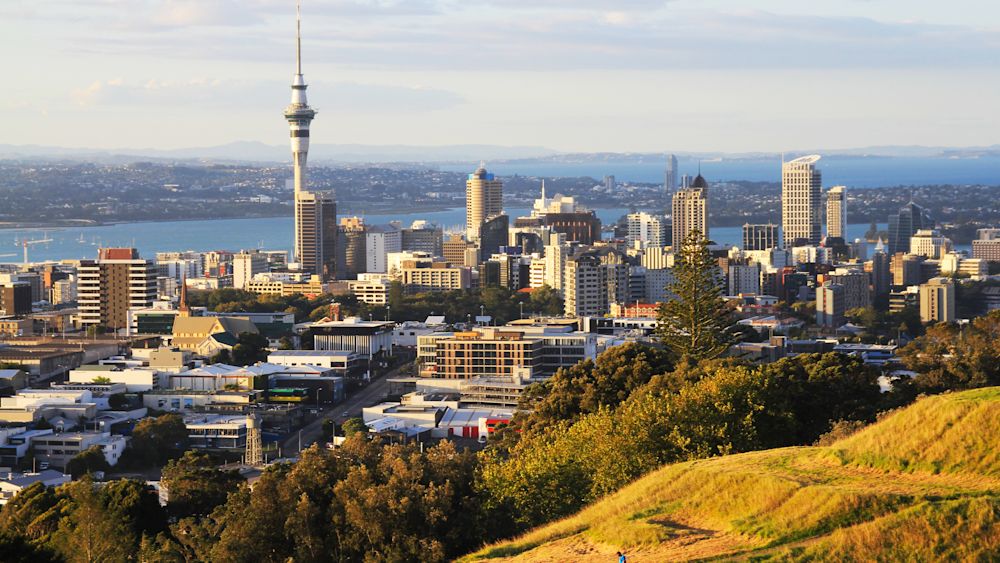
Located precariously close to the bottom of the world map and hosting fewer total occupants than many US cities, New Zealand wouldn’t pop out as a natural innovation hotbed to the untrained eye. But while isolation may have fostered inertia in other small island nations, New Zealand has turned its seclusion into an advantage, becoming a breeding ground for world-changing technological advances.
In recent years New Zealand-born brands like Rocket Lab, Xero, and Lanzatech have started to make their mark in the global tech sector, challenging the status quo in a range of industries. Part of the success of these kinds of world-changing companies boils down to a long history of innovation — Kiwi Ernest Rutherford first split the atom 101 years ago — and a supportive local ecosystem.
“Being so far away from everyone else has contributed to the fact that we’re a country of innovative thinkers that aren’t afraid to adopt new ideas and technology,” said Aaron McDonald, CEO of blockchain startup, Centrality.
With New Zealand’s top export, tourism, set to take a huge blow from COVID-19, its tech sector is likely to bubble up as its number two export. To sustain this growth and continue to attract the top talent to its picturesque shores, the tech community have built a reputation as a great place to work. Examples of this include Kiwi company Perpetual Guardian starting a global trend with the ‘four day work week’, its capital city flying 100 top techies over on a recruiting holiday, and the government creating the world’s first innovation visa.
History has proven that more than any great idea, the people behind a company are the most essential element to success; something Kiwi startups appear to intimately understand. To celebrate the exciting work going on among NZ and the talented teams driving them, we’ve highlighted a list of the nation’s top 10 most promising startups.
1. Soul Machines

It’s times like these that we are intimately reminded of how important face to face communication really is; but what that ‘face’ looks like might not be exactly what we expect if New Zealand’s Soul Machines has anything to do with it.
Spun out of a research project at the University of Auckland in 2016, Soul Machines first brought the idea of anthropomorphising AI with the immaculate conception of “BabyX” — a digital child that evolves and learns like a real human kid, but faster. Four years later and BabyX is now a verified genius, and the company is providing digital helpers for massive global companies like Procter & Gamble, Bank ABC, and The Royal Bank of Scotland.
The futuristic company recently secured a $40 million raise to assist the brand’s international expansion and R&D, and are poised to help shape the way we interact with brands online.
Co-founder and CEO Mark Sagar also boasts two academy awards to his name from his previous work at Wellington production house, Weta Studios, while his Co-founder Greg Cross has enjoyed an illustrious career in NZ tech, co-founding PowerByProxi, which was acquired by Apple in 2017. Soul Machines's 150 employees are spread across seven global offices and five countries.
2. Tend

While it’s still months from actually launching, Tend has quickly cemented itself as one of the most important tech startups launching into New Zealand this year.
The new digital healthcare service aims to replace inefficient brick & mortar medical services with a streamlined app and online consultations. Over the country’s lockdown period Kiwis have been reducing visits to their local clinics, meaning fewer New Zealanders are receiving the healthcare they require; it’s put the magnifying glass squarely on an antiquated healthcare model that is, in many ways unfit for the 21st century. Tend is eyeing a mid-year launch, having recognised the immediate need for their product in the local market.
Tend has an impressive pedigree in its leadership team, with co-founder Cecilia Robinson formerly starting the country’s top food delivery service, My Food Bag. Tend’s team is currently composed of more than 20 health professionals and engineers as they prepare the product for launch. They have noted to The Org they’re working on building strong gender diversity in the team, with a current 60:40 M/F split overall, and women holding 75% of the seats on the governing board.
The company is bootstrapped, which will allow them greater ownership of their direction as they introduce telehealth into New Zealand.
3. Helius Therapeutics
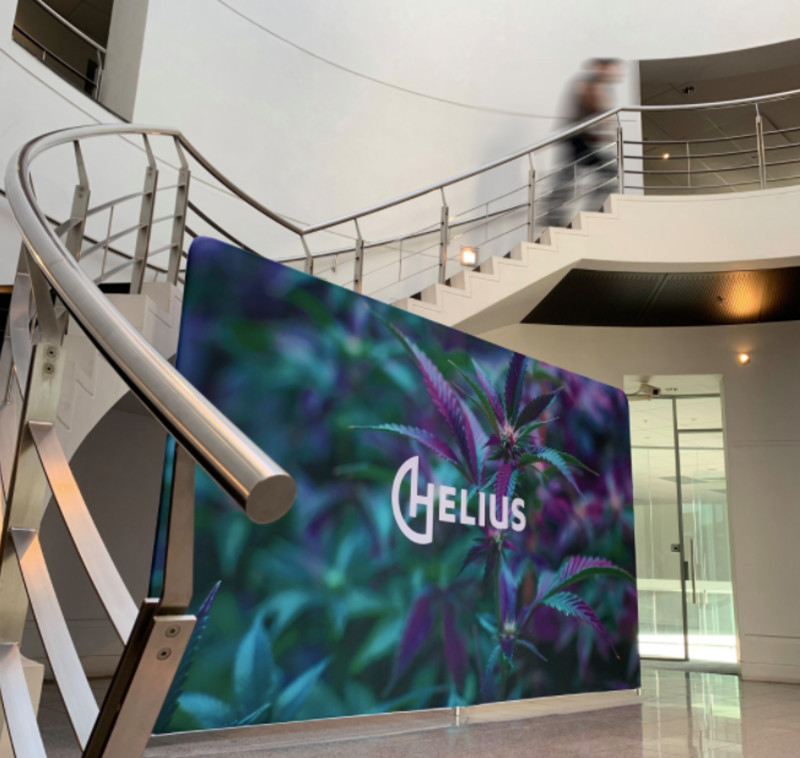
September 19 is an important date in the New Zealand calendar for a couple of reasons. While Kiwis go to the voting booths to decide on their preferred political party, they’ll also choose whether to give green stuff the green light. The referendum on legal cannabis will be a huge market opportunity for several local medicinal cannabis outfits, but the company most prepared to capitalise is Auckland-based Helius Therapeutics.
Recent changes in New Zealand’s medicinal cannabis regulation have already given Helius Therapeutics a head start, and the company has invested heavily in research and development, particularly around clinical trials. The company boasts a 65,000 square foot indoor growing space with the construction of further industrial growing sites on the near horizon. With its infrastructure in place, Helius is in strong steed for when the floodgates potentially open this September for a general marketplace.
Regardless of the decision on legal recreational cannabis, Helius has already secured their first international distribution deal with Australian Medipharm Labs and appears well placed to service the medicinal market. It’s received $35 million in investment and employs 20 staff currently. It’s headed up by former ad man, Paul Manning, who sold his first agency to global giant, Ogilvy, back in 2007.
4. Halter
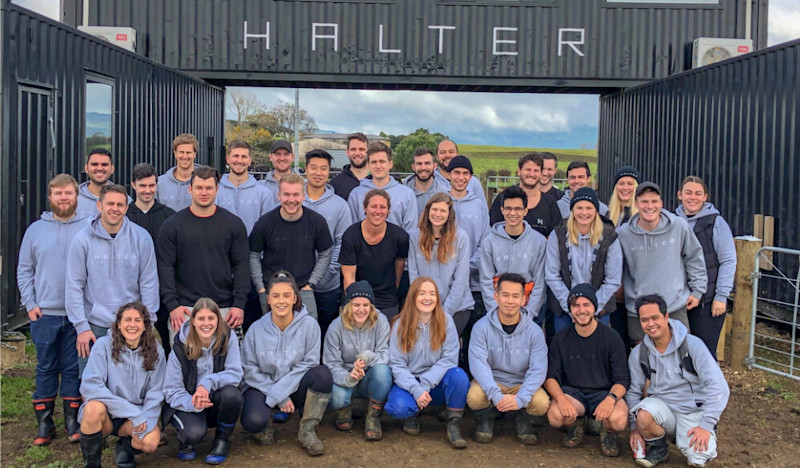
New Zealand may have been built on No.8 fencing wire, but Halter’s founder and CEO Craig Piggot has figured out a means to do away with fences altogether. Halter’s technology may just be a promise for a new wave of hands-off farming, despite not being available on the open market yet.
In 2016, Halter developed a special collar which uses a combination of bluetooth, sounds and vibrations to help guide cows around the farms. Where currently this is done with a combination of on-foot famers and farm dogs, the innovative collar will allow much of this herd management to happen remotely. The team has spent the last four years in stealth mode while they develop the collar before bringing it to the world.
While the collar itself carries the promise of disrupting the way farmers across the world work, questions have cropped up about the company’s extensive period in stealth mode — worries which were more or less completely squashed when Halter announced its board members this; a who’s who list of NZ tech including Rocket Lab CEO, Peter Beck, and former Trade Me CTO, and now Halter's VP of Engineering, Simon Young.
The company’s long-term focus on R&D and its team of 45 employees suggest Halter will become a mainstay exporter in New Zealand’s fast-growing agritech industry.
5. LearnCoach
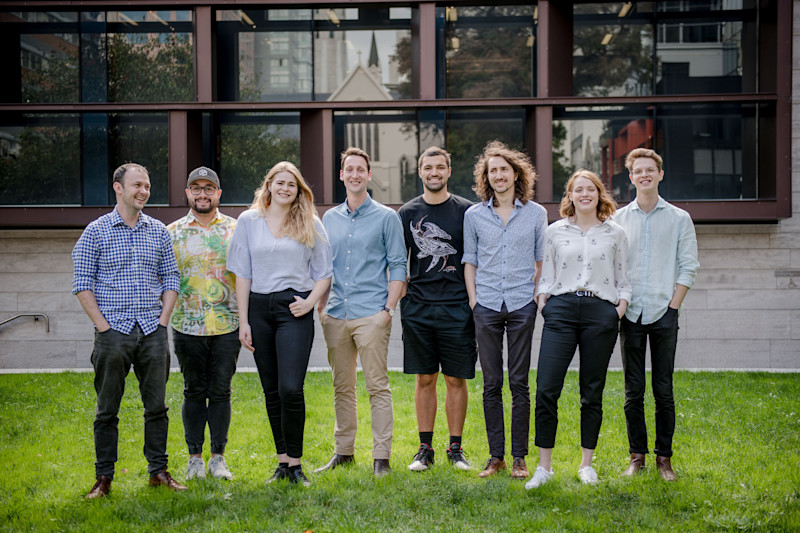
Founded in 2012, the online learning platform LearnCoach attracts more than 100,000 annual paid users to learn, practise, and test for New Zealand’s high school curriculum, the NCEA.
The company has made some strong progress since starting eight years ago, but really started turning heads just a month ago when they launched New Zealand’s first ever online classroom in response to the COVID lockdown; fit with official testing and tutorials.
LearnCoach’s founder and former Young New Zealander of the Year, David Cameron, described their mission as ”providing everybody with access to education”. With recent murmurings of an expansion across the ditch and increasing their services into university coursework, Cameron’s audacious vision may actually be tenable. He points out that though the lockdown has been trying for their Auckland-based team, their shared purpose has kept them motivated as well as some more light hearted cyber moments.
“We’re lucky to have a great team who can have fun together on Zoom calls,” said Cameron.
6. Mevo

Wellington micro-mobility startup, Mevo, has introduced a fresh way of looking at New Zealand’s massive congestion problem in urban centers.
Mevo, which got its start in 2016, is a luxury car-share service looking to help Kiwis buck their private car addiction, by offering affordable access to a fleet of Audi Plug-in cars instead. The service functions much like an e-scooter share readers would have encountered, where cars can be picked up or dropped off at any park around the city, while users only pay for the time spent driving.
The company has received more than $3 million in capital from leading local energy company, Z Energy, among others, and intends to launch their services into Auckland, and later Australia. While some companies have been hamstrung by the limitations of the lockdown, Mevo’s 18-strong team has managed to flourish with remote communication.
“For Mevo, Covid-19 has given us a dress rehearsal for working as an international and digital-first team,” said CEO Erik Zydervelt. “I think it’s set us up well, so when we are hiring a lot of new people, a social workplace culture that relies on digital communication is already established and embedded.”
7. Flamingo Scooters
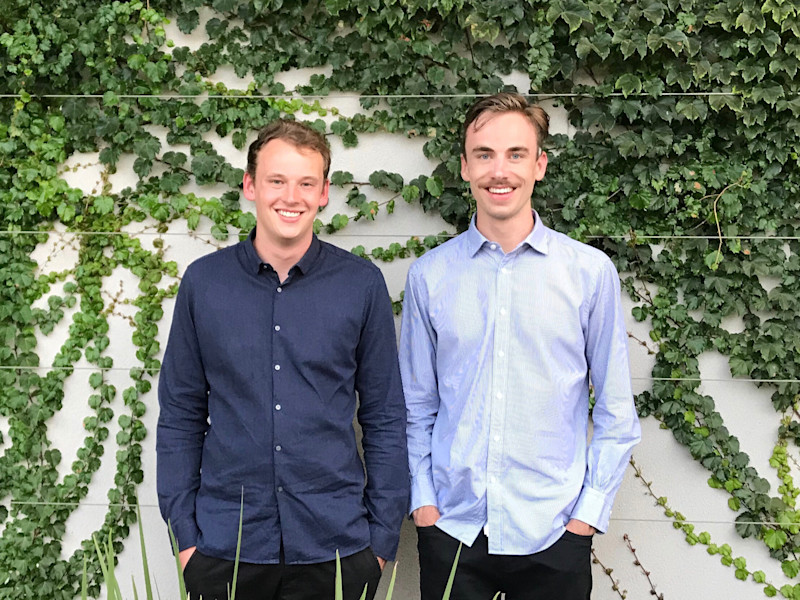
In New Zealand's ever-political e-scooter sharing landscape, Flamingo has risen above the rest as the most impressive locally born product. Flamingo is modeled on the many global e-scooter shares, with a series of hot pink scooters which can be picked up and dropped off with an easy to use app.
Due to safety concerns and public feedback, in 2019 New Zealand restricted the number of e-scooter companies permitted to operate in each city. It’s here that Flamingo Scooter has really shown their stripes as a powerful lobbying presence (particularly impressive with both founders still under 23 years old). The company recently won the Auckland contract for their services, meaning they now have scooters in the country’s three largest cities, beating out the likes of Silicon Valley brands Lime and Uber.
Flamingo Scooters has a strong vision to build a better micro-mobility infrastructure throughout New Zealand, and are led by young visionary co-founders Jacksen Love and Nick Hyland. They employ thirty staff and 150 contractors, with women holding 50% of management roles.
8. Medsalv
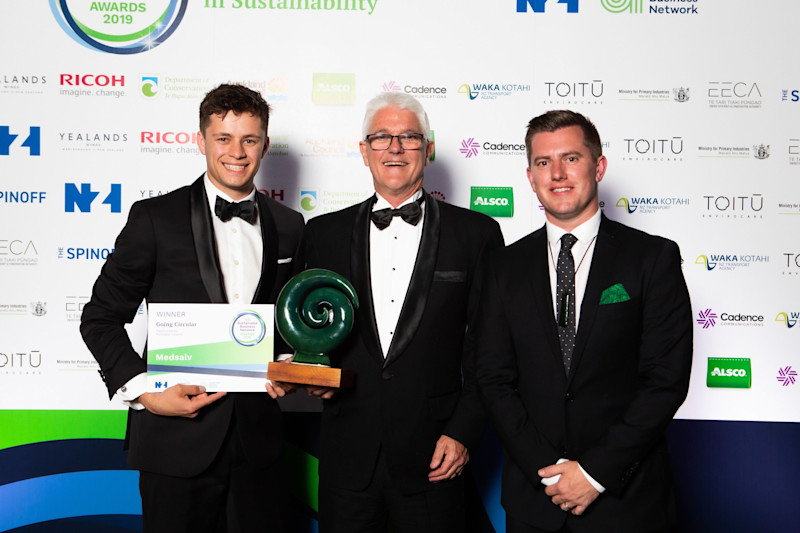
Hospitals are wasteful places. The huge (an important) emphasis put on sanitisation has meant that for a long time, throw-away single use items have been the only way to guarantee complete hygiene.
Enter local startup, Medsalv. The brand is on a mission to help hospitals and medical centres recycle the many items used in healthcare which would have been otherwise tossed out. Best compared to the US startup Stryker Sustainability, Medsalv processes medical equipment using proprietary techniques and equipment, restoring it to 100% of its original cleanliness.
Medsalv is still in its early stages but CEO Oliver Hunt tells The Org they’re in conversations with New Zealand’s largest District Health Boards to start working as contractors. If the company is able to get a foothold, they’ll have the opportunity to replace $100 million in unnecessary public healthcare expenditure — a major market opportunity.
The bold goals for NZ’s healthcare sector are supported by a shared vision of sustainability. “We're committed to doing everything we do in the most sustainable way possible, without compromising patient safety. Our team culture stems from this, and is characterized by professionalism, inclusiveness, expertise, authenticity, and excellence,” says Hunt.
10. Centrality
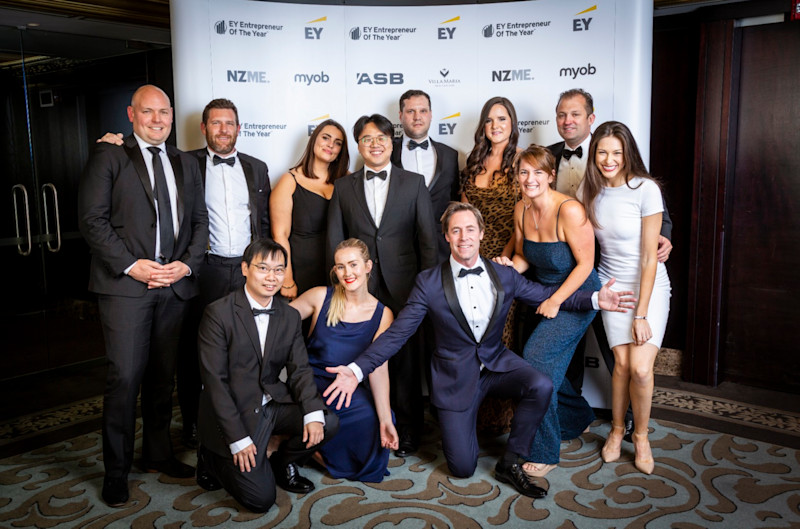
While the arrival of blockchain had huge ripple effects around the world, New Zealand has generally been a little slower in the uptake of distributed technology. The most powerful voice for blockchain’s potential in the local market comes from Auckland startup, Centrality.
Centrality made huge waves in 2018 when it raised the equivalent of $80m in its initial coin offering, providing the company with a wealth of cash to begin its self-styled ‘venture studio.’ Using its own ‘blockchain’, Centrality supports a community of more than 30 up and coming NZ tech startups, assisting with early stages of design to build the businesses. In turn, Centrality benefits, expanding to “share in the value that is created together.”
While somewhat difficult to grasp, the esoteric company has become highly involved in New Zealand’s tech sector, hosting meetups, hackathons and developer weekends to share their knowledge and build the use of blockchain in New Zealand. They currently employee 46 people in their Auckland base.
--
We weighed up more than 60 promising local startups to come to this Top 10, and it wasn’t done easily. Some companies that were incredibly close to making it include payments innovator, Invenco, customer experience company, AskNicely, and property tech startup, Jasper. All of the companies that made our leaderboard have a diverse team and a transparent business model.
Ideas alone aren’t going to breed the next level of success, it needs to come from the many talented people that make up a business. New Zealand, like the rest of the world, is going to be going through a difficult patch in the coming months and years, but with the right combination of talent, culture, and vision, we’re confident that companies like the ones above will have long lasting growth and success.
Do you agree with our list?
Should your company have made this list? Join or create your company on The Org or send us an email at hello@theorg.com. We want to hear your feedback, comments and suggestions!


The ORG helps
you hire great
candidates
Free to use – try today
